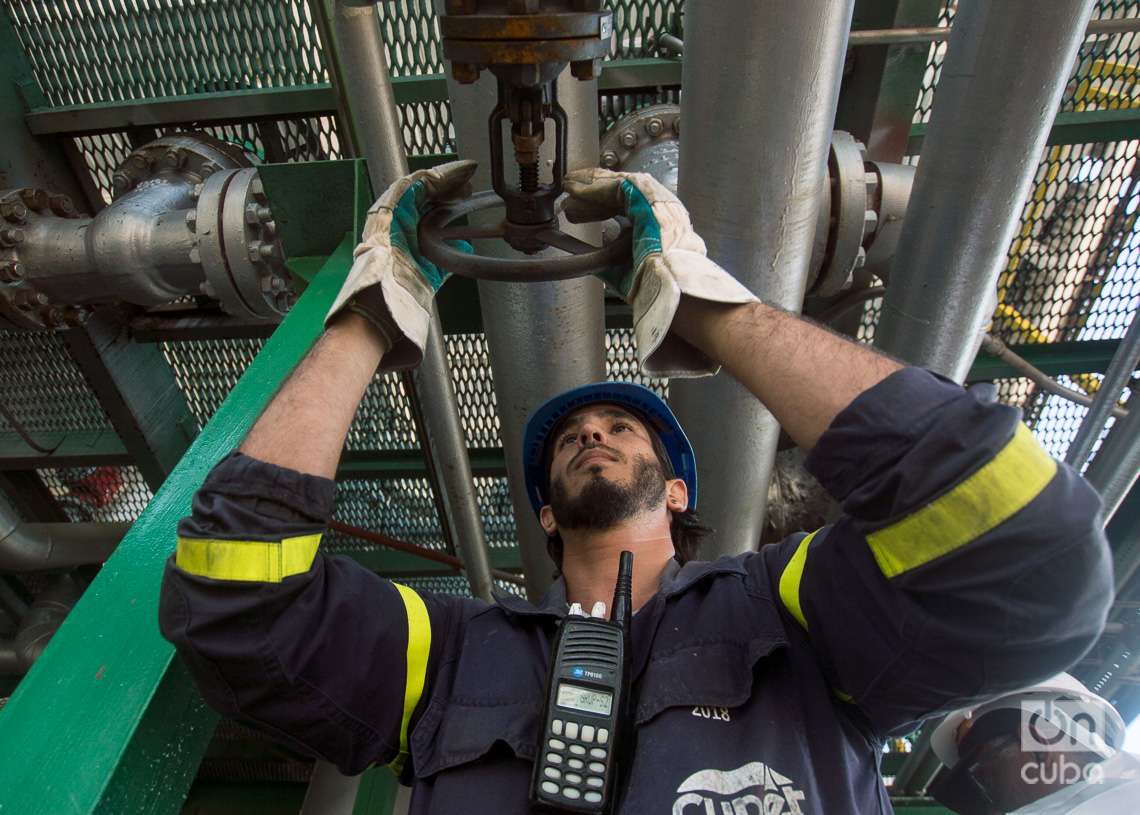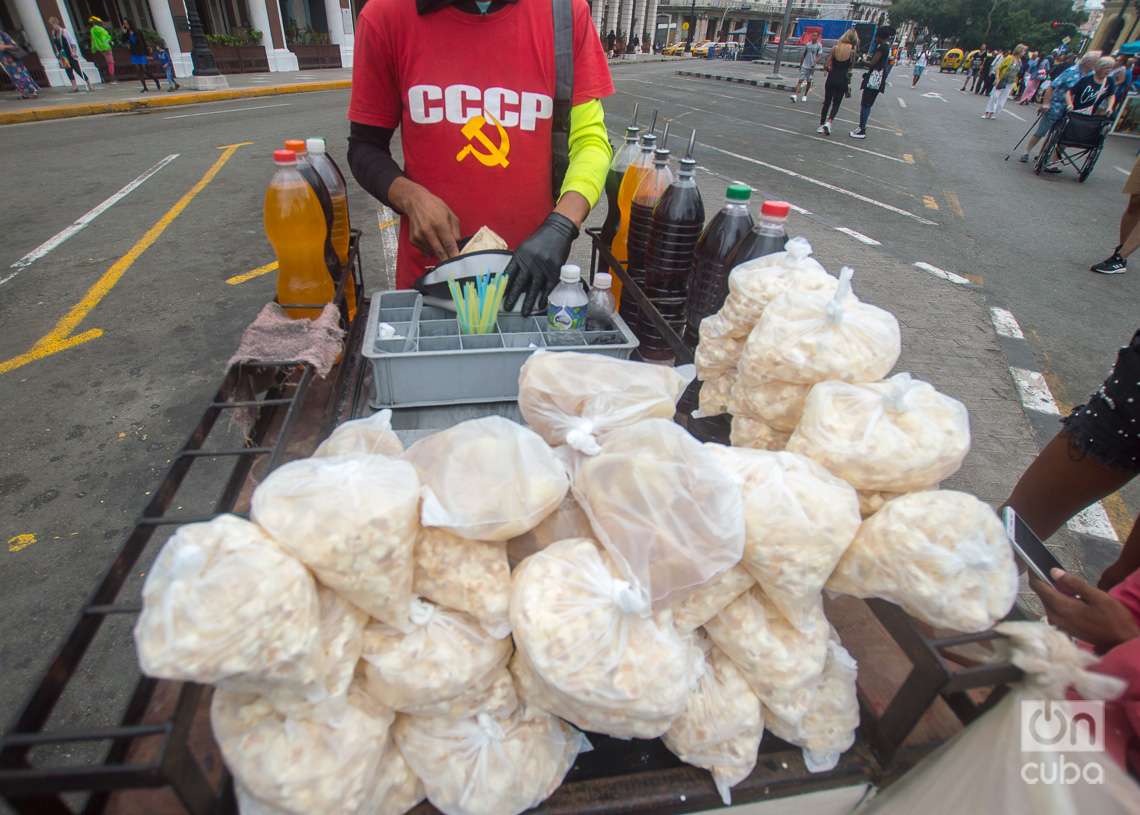Apparently, the Cuban government is finalizing the details of the future Law on Enterprises, a law that should have been approved a few years ago and that was postponed again in 2022. In the end, everything indicates that the new Parliament that will be constituted this year will have it on its agenda for the last session, in December 2023.
Within what has been called “Updating the Economic Model,” a Law on Enterprises is something very important if the objective is to advance. If there is no solution to the inconsistencies of the Cuban business fabric, it is not possible to aspire to get out of such a low point in which the Cuban economy finds itself.
Few know the details of the final regulation, but the country’s authorities commented that more than 600 state enterprises had been surveyed, which allowed them to discuss the scope, objectives and principles of the future law.
But it must be remembered that the new Law on Enterprises is not for state-owned enterprises, but for all existing forms of ownership and at all scales.
Minister of Economy and Planning Alejandro Gil Fernández commented a few weeks ago that for this law the organizational and decentralization movements, the typology, the integration, the patrimony, the ways of associating or expanding, the economic regimen, the autonomy, financial relations with the State, worker participation, management bodies, social responsibility and control and internal audit, among other aspects, were being assessed.
Gil Fernández also affirmed that “this law will help to put in their place many things associated with their missions, governance, Governing Boards, OSDE (Higher Organization of Business Management), allocation of resources, powers to promote international insertion and creation of businesses with foreign investment.”
The new regulation has to overcome the dilemma between state and non-state, and recognize the elements of business autonomy, legal security and ownership that all enterprises require in order to fulfill their purposes.
But what is the structure of the Cuban entities at the end of December 2022?

The graph illustrates that the state enterprises are not the protagonists of the Cuban business fabric in terms of number, although they certainly add up the largest number of assets, jobs, production value, in strategic activities, among other indicators.
It must be taken into account that the Cuban Constitution establishes in its article 27 that the state enterprise “is the main subject of the national economy,” and although its autonomy in administration and management is recognized, it continues to be highly dependent on the decisions and regulations established by the country’s leadership. And that is a problem that weighs down the state enterprise.
The socialist economic model that prevails in Cuba has not been able to guarantee economic well-being, since attempts have been made to make it advance from a very low level of its productive development and build it, for a long period, based on the pre-eminence of state enterprises loaded with inefficiency.
There are no theoretical or programmatic documents that explain how many state enterprises should exist in Cuba, in which branches they should be, and if not, it is better to speak of public enterprises. It has never been specified that for an enterprise to be socialist it has to be state-owned. But that idea is fixed by some decision-makers. It was what led to the well-known Revolutionary Offensive of 1968, with the nationalization of all existing enterprises in the country.

It is known that a state-owned enterprise could only be competitive if it has autonomy. That is, if it makes its own decisions and enjoys true business management for the administration of resources.
Nor has the concept of “fundamental means of production” ever been defined. I think that the decision-makers consider that the strength of the Cuban socialist economy would be guaranteed by the number of enterprises that are under the state system, and that is a big mistake.
The concept of socialist enterprise and what is its statistical classification and in which branches they are ― whether in steel production or managing a kiosk ― must be kept in mind.
The long-awaited Law on Enterprises will have to define the prevailing incentives for Cuban enterprises as a whole.
In the Cuban business conglomerate, there are a large number of enterprises with losses and more than proven inefficiency. Therefore, it is necessary that this law reflect the bankruptcy of enterprises with consecutive losses, which affect economic development.
One should not fear the closure of these enterprises in losses and, in some case, give it to the workers in the form of shares, so that they can try to revive it, since they would benefit from the profits that they themselves are capable of achieving. The inventiveness of some Cuban collectives should not be underestimated.
It is necessary that this Law on Enterprises clarify and reanalyze the business structure of the Higher Organization of Business Management (OSDE) and the Grassroot Business Units (UEB) since the latter do not have legal status, which prevents them from having a bank account — with all the restrictions that this implies. The few Cuban sugar mills that still exist are in this situation.

Vendor of popcorn and drinks served on crushed ice. Photo: Otmaro Rodriguez.
The subordination of enterprises to the OSDE has not been a good invention, much less for those who produce the most and a benefit for those who produce less. There are enterprises that distribute little or no profit, and those that can, do not because they do not have liquidity. However, the OSDE departments sometimes distribute more profits among themselves.
The OSDEs exist precisely to maintain centralized bureaucratic control at the country level and to handcuff the grassroots enterprises. The different plans that are imposed on grassroot enterprises tie them to their performance and are generally ill-conceived, since a national sport is never fulfilling existing plans, and that is where business investment plans stand out.
The environment of business activity in Cuba is the same that characterizes the entire country, including bureaucracy, legal uncertainty, higher orientations, among others.
The Cuban economy needs to define the new legal, political, economic and social framework for enterprises. That Law has to eliminate regulatory barriers. And it must make it possible to overcome the concern for the growth of private enterprises or cooperatives. That is, break the atavism that prevents the accumulation of enterprises.
The Law should establish the differences between the different enterprises, with their forms of legal organization, their size, their sectoral and territorial classification, and profit objective.
It is inconceivable that, in a country as small as Cuba, with strong international rivals and a suffocating blockade against the country, we allow ourselves the luxury of continuing to postpone and question vital issues. There are plenty of international experiences from countries that have begun their development in less time than the Cuban one and each year they ascend a step, while Cuba continues to regress.
For a time, China tried to protect its state-owned enterprise, but at the same time it gave ample facilities to the private sector: it played at competition, and at the same time it had strategic sectors that it controlled, such as banking. But today China is the second largest economy in the world and the state enterprise is a minority. So why waste time trying to find out what others have already done, and with concrete results.










